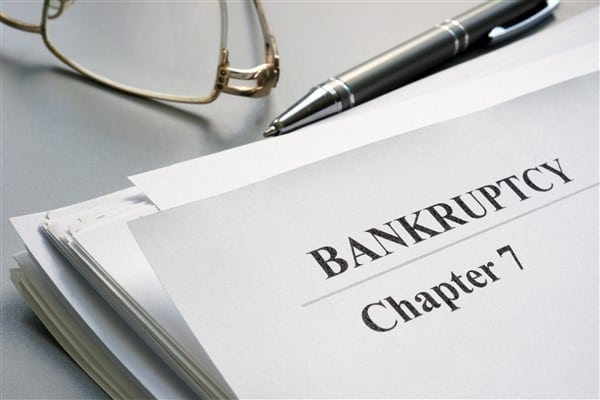Receiving a Notice of Bankruptcy: What to Do?
Receiving a notice of bankruptcy in the mail can elicit a wide range of emotions. For creditors — those who are owed something by an organization or person — there can be feelings of panic or indignation at the thought of not getting what you are owed.
That’s where experienced guidance can help — beginning with an understanding of some of the basic terminology and mechanisms of bankruptcy law.
What does it mean if I receive a notice of bankruptcy?
The notice is an alert that a debtor — a person or institution that owes a sum of money — has filed bankruptcy. It means they’ve filed a petition, either to negate the debt or to receive some relief so they can continue being in business. The notice typically is sent to creditors about a week after the debtor files bankruptcy. The notice will include a case number which you’ll need to provide to allow the firm to see the filing documents.
What should I do if I receive one?
Schedule an appointment with an experienced bankruptcy lawyer. The attorney should discuss the two most pressing items in the notice of bankruptcy:
- Notice of meeting of creditors — this is the initial meeting with the company representative to discuss the bankruptcy, and where you can ask questions and get information about next steps.
- Due date for a proof of claim — depending on the type of case filed, you will need to file your “proof of claim” which is required by all creditors to get paid. You will want to provide documentation of how much you are owed. A bankruptcy trustee will then determine how much to pay the creditor.
What if I’m an employee of a firm that has filed for bankruptcy?
- If an employee of a firm filing for bankruptcy isn’t owed money (according to the debtor), they will not receive a notice of bankruptcy. But they will receive one if the firm acknowledges they owe that employee something.
- In most cases, if you receive a notice as an employee, the debtor wants to stay in business. There is usually a meeting to ensure employees get paid. If you’re a secured creditor, it is typically beneficial to have counsel and be involved in the meetings and the overall process. It can be beneficial for unsecured creditors to be involved also, or at to least monitor it.
What’s at stake in a meeting of creditors?
A representative of the debtor is required to appear, but some creditors choose not to appear at these meetings. The risk in not having a plan to appear at the meeting is losing the opportunity to present information that may be different from what the debtor is presenting.
The meeting is run by the chapter 7 trustee in a chapter 7 case and the United States trustee in a chapter 11 case (with the participation of the subchapter v trustee in a sub v case). The trustee may appoint a creditors committee, who will speak for the whole creditor body.
What is the bankruptcy trustee’s role?
Bankruptcy trustees evaluate and make recommendations about various debtor demands in accordance with the U.S. Bankruptcy Code. They are appointed by an officer of the Department of Justice to represent a debtor’s estate in a proceeding.
An experienced attorney can assist, and can file a counterclaim, if a creditor believes the debtor’s scheduled claim is inaccurate. The creditor will have to produce a documented figure to show how much they believe they are owed. An experienced attorney can also assist with obtaining relief from the automatic stay, getting adequate protection payments during the course of the case, evaluating a debtor’s plan in a chapter 11 and other valuable services.
What skills and experience are best in a bankruptcy attorney?
When choosing legal representation in a bankruptcy case, either as a debtor or creditor, look for a firm with experience both in large and small cases, and attorneys with expertise in multiple areas. This allows clients to access a breadth of knowledge, so that their case can be handled completely in-house, regardless of size or type.
It’s also important to have legal representation with experience on both sides — both creditor and debtors — to ensure a deep understanding of the process on both sides. While most bankruptcy filings are relatively straightforward proceedings of the settlement of assets, there are also occasions where litigation arises in disputes, and these typically will go before the same judge overseeing the bankruptcy case.
Next steps?
In any bankruptcy, the key is to have a clear understanding of your options and to engage experienced legal representation to ensure your interests are protected. Jennis Morse features attorneys with deep bankruptcy experience in all aspects of bankruptcy as well as with complex litigation related to key disputes with creditors and litigation exposure, and can assist in pre-bankruptcy negotiations with creditors.

